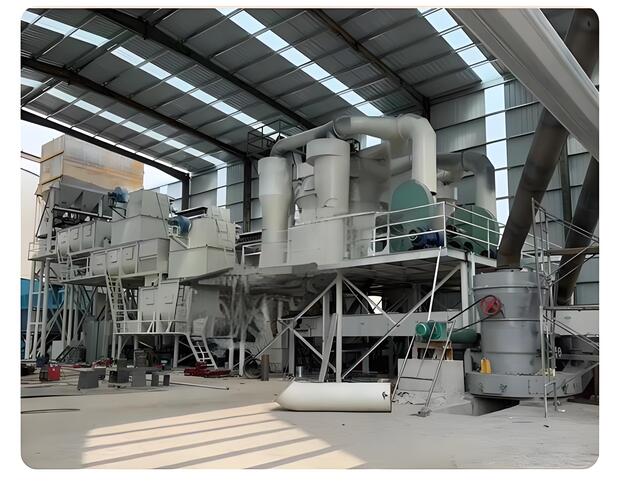Calcium Hydroxide Manufacturer: How to Choose the Best Supplier for Your Business
News 2025-03-14
Learn how to choose the best calcium hydroxide manufacturer for your business. Discover key factors like quality control, certifications, and cost-effectiveness to ensure you partner with a reliable supplier.
Introduction
Calcium hydroxide, also known as slaked lime, is a crucial chemical compound used across multiple industries, from construction to water treatment and food processing. Choosing a reliable calcium hydroxide manufacturer is essential to ensure product quality, compliance with industry standards, and cost-effectiveness.
Whether you’re in the chemical, agricultural, or industrial sector, finding the right supplier can significantly impact your operations. In this guide, we’ll cover everything you need to know about calcium hydroxide manufacturers, answer frequently asked questions, and help you make an informed decision.
Understanding Calcium Hydroxide and Its Applications
Calcium hydroxide (Ca(OH)₂) is a white, odorless powder produced by combining calcium oxide (quicklime) with water. This chemical reaction, called slaking, generates a versatile compound with a wide range of applications.
Key Uses of Calcium Hydroxide
Water Treatment: Used to neutralize acidity and remove impurities in municipal and industrial wastewater.
Construction Industry: Integral in cement, plaster, and mortar production for its binding properties.
Food Industry: Used in corn processing, sugar refining, and food preservation.
Pharmaceuticals: Acts as an antacid and pH regulator in medical formulations.
Agriculture: Helps in soil pH balancing and fungicide production.
Chemical Manufacturing: Serves as a precursor for various calcium-based chemicals.

What to Look for in a Calcium Hydroxide Manufacturer
Choosing the right calcium hydroxide supplier involves evaluating several key factors. Here are essential aspects to consider:
1. Quality Control and Certifications
A reputable manufacturer follows strict quality control protocols and holds industry certifications such as:
ISO 9001: Quality management systems.
FDA Compliance: Necessary for food and pharmaceutical-grade calcium hydroxide.
REACH & RoHS Certifications: Environmental safety compliance in Europe.
2. Purity and Composition
The purity level of calcium hydroxide affects its effectiveness in various applications. Manufacturers should provide:
Chemical composition analysis.
Impurity levels (e.g., heavy metals).
Safety data sheets (SDS).
3. Production Capacity and Reliability
For businesses requiring bulk supply, it’s crucial to check:
Production Volume: Can they meet your demand consistently?
Supply Chain Stability: Do they have backup sources for raw materials?
Logistics Efficiency: Are they capable of timely deliveries?
4. Cost-Effectiveness
Pricing should be competitive without compromising quality. Consider:
Bulk order discounts.
Shipping and handling fees.
Payment terms and contract flexibility.
5. Industry Reputation and Customer Feedback
Check for customer reviews, testimonials, and industry partnerships. A reliable manufacturer should have a track record of consistently delivering quality products.
Frequently Asked Questions About Calcium Hydroxide Manufacturing
1. How is Calcium Hydroxide Manufactured?
Calcium hydroxide is produced through the hydration of quicklime:
Step 1: Quicklime (CaO) is obtained from limestone calcination.
Step 2: Water is added, generating an exothermic reaction that results in calcium hydroxide.
2. What Are the Different Grades of Calcium Hydroxide?
Manufacturers provide various grades depending on purity and use:
Technical Grade: Used in construction and industrial processes.
Food Grade: Meets FDA standards for use in food processing.
Pharmaceutical Grade: Highly purified for medical applications.
3. How Can I Verify the Quality of Calcium Hydroxide?
Request a Certificate of Analysis (COA).
Check for third-party lab testing.
Review SDS and material safety data sheets.
4. What Are the Packaging Options for Bulk Orders?
Manufacturers offer:
25kg and 50kg bags (small-scale industrial use).
1-ton jumbo bags (bulk supply).
Customized bulk tanker deliveries.
5. What Is the Shelf Life of Calcium Hydroxide?
Calcium hydroxide typically has a shelf life of 6 to 12 months if stored in a dry, airtight container away from moisture.
How to Choose the Best Supplier for Your Business Needs
Step 1: Identify Your Requirements
Define the grade, quantity, and delivery frequency your business needs.
Step 2: Shortlist Potential Suppliers
Compare manufacturers based on quality certifications, pricing, and customer reviews.
Step 3: Request Samples and Documentation
Ask for samples, COAs, and SDS reports to verify quality.
Step 4: Evaluate Customer Support
Reliable suppliers provide responsive customer service and technical assistance.
Step 5: Finalize a Contract
Negotiate pricing, payment terms, and supply agreements for long-term reliability.
Conclusion
Finding the right calcium hydroxide manufacturer is a crucial decision that impacts product quality, cost-efficiency, and operational success. Whether you’re in the chemical, construction, or food industry, partnering with a trusted supplier ensures that you receive high-quality, consistent, and competitively priced calcium hydroxide.
By considering factors like quality control, production capacity, certifications, and industry reputation, you can confidently select a manufacturer that meets your needs and supports your business growth.
Contact Us
Looking for a reliable calcium hydroxide supplier? Contact us today to learn more about our high-quality products, competitive pricing, and exceptional customer service. Our team is ready to assist you with tailored solutions for your business needs.



